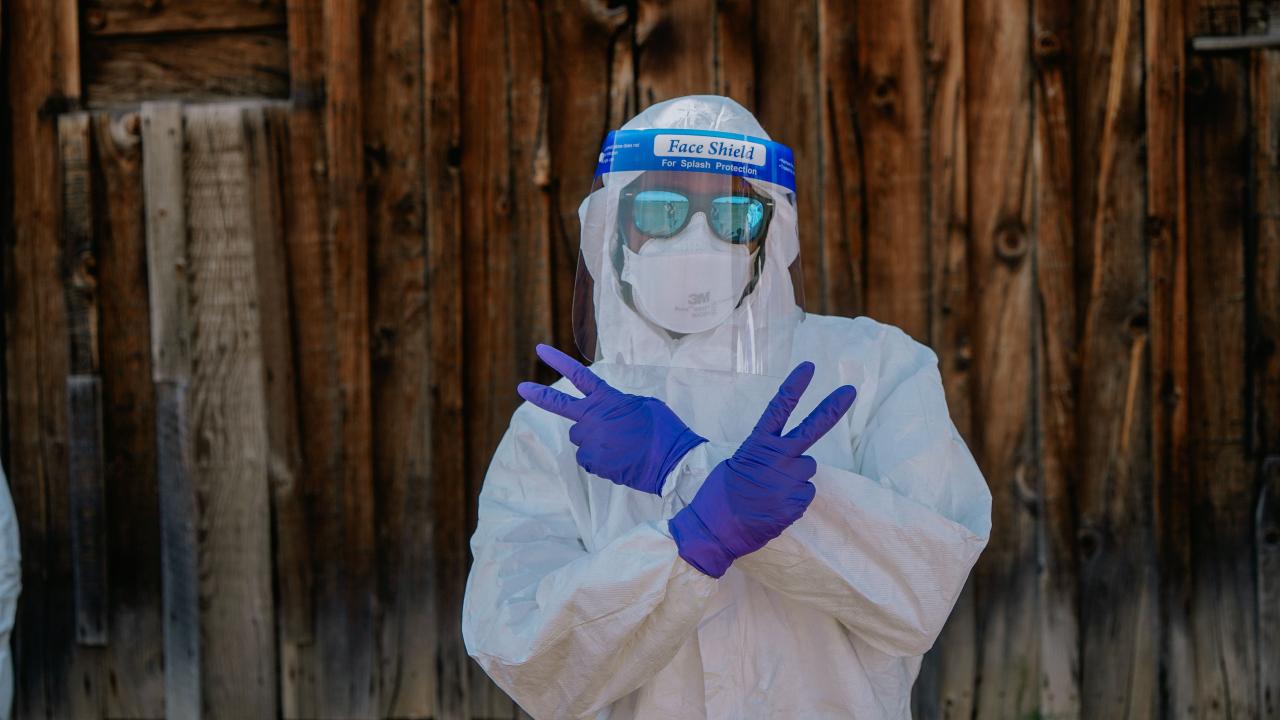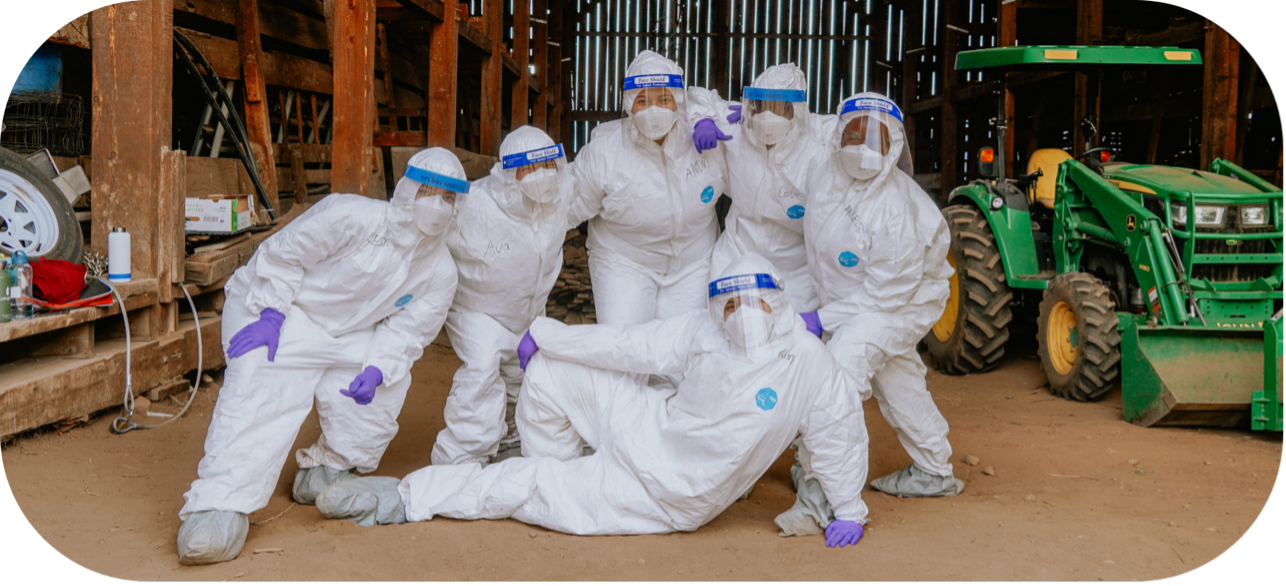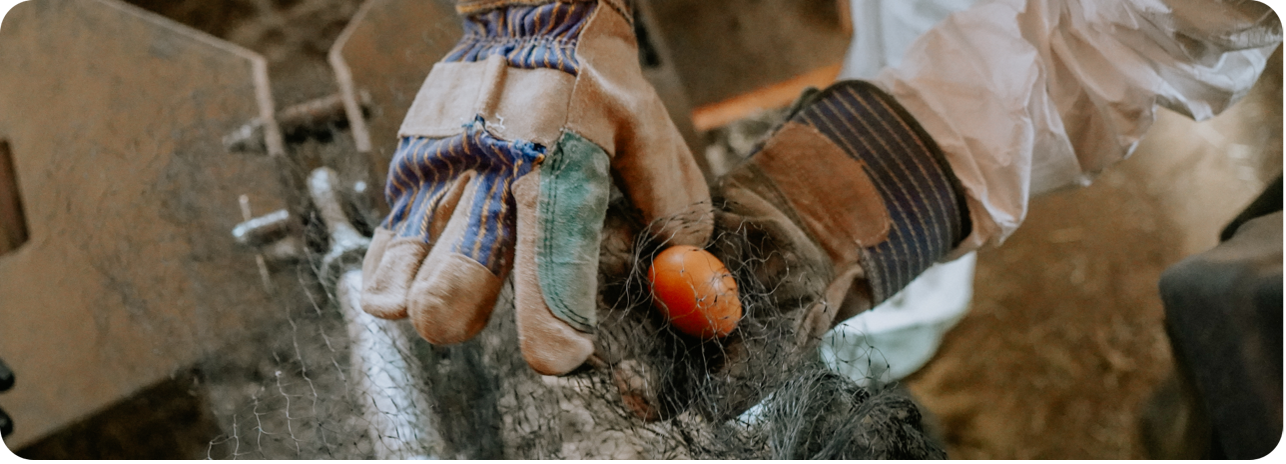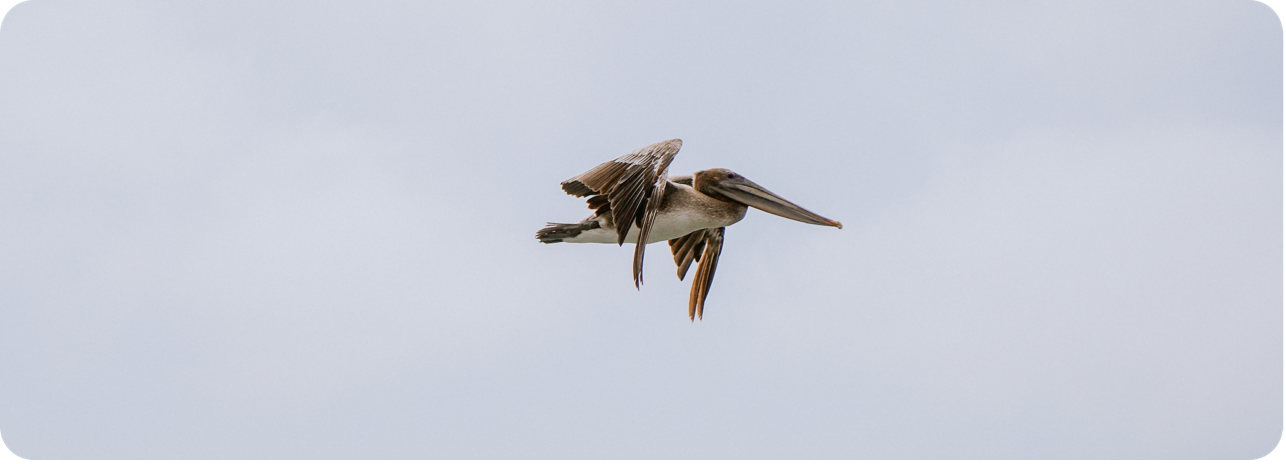
RxOH 2022 Alum: Agazi Fitsum Gebreselassie
Agazi Fitsum Gebreselassie
RxOH: the Red Pill
Hi there! My name is Agazi and I am a project manager, lecturer, and One Health (OH) practitioner based in the University of Global Health Equity in Rwanda. I hold a medical degree and a masters in global health. I became interested in RxOH as a way of elevating my OH knowledge and experience beyond hospitals and meeting rooms. Often, as I channeled my inner OH orator, I felt a gnawing emptiness regarding real world collaborative approaches. RxOH was the red pill I needed 😋

There’s one thing I must express from the get-go – RxOH was not what I had expected. It was much more. Frankly, I didn’t really have any strongly formed notions about what the course entailed. Sure, I conducted my research around the topics being offered but I didn’t really harbor any preconception about how it would feel. Like any collaborative fan girl, I am enamored with the idea of exploring One Health concepts in the company of beings from all walks of professions and countries. The boiling cauldron that was RxOH would be the place where we would all stew in a shifting soup of creativity. Scoop up a tablespoon of creamy RxOH soup and down the hatch it goes!
The course kicked off in the UC Davis campus – a sprawling behemoth of a university located within an affluent village bearing the same name 👀. The cohort consisted of several amazing professionals studying and working on a myriad of projects - virologists, vets, physicians, bacteriologists, and spatial analysts! As someone with a background in human medicine, I was very excited to break free from the insular constraints that plague my field and learn from all these wonderful souls. Everything ran smoothly over the first few days. We received short lectures on fascinating topics such as migrant farm work in California, stakeholder engagement during public health outbreaks, and anti-microbial resistance. What fun topics - I giggled like an infant as I took in concepts I had never encountered before. A fun exercise we conducted during this time was to write a letter to our future selves about what we envisioned for our OH careers. Here is an excerpt from my internal mental diatribe during the inception of the letter. 🤭
What do I want to see for my One Health career in roughly 20 years' time? That's an extremely difficult question to answer – the future remains an uncertain gooey blob viewed through a shifting mirage. Although I do find value in the technical aspects of One Health – disease surveillance and stakeholder mapping for example – I feel like it's important to center the protection of vulnerable individuals – women and those suffering exclusion through race, identity etc. I will need to integrate these values in my OH journey. However, I am a fan of strong technical skills – how can I use Python, GIS, and (potentially) Rust in One Health?
Clover + Valley = Clover Valley

Prior to RxOH, I wouldn’t have described myself as a camper or someone who found joy in aimlessly wandering through forests and cooing over the majesty of nature. I must admit, the thought of camping on a sprawling ranch for 4 nights was not something I was looking forward to when we relocated from Davis to Clover Valley. Drs Woutrina and Brain graciously opened their beautiful space for us to explore and learn. The unique enclosure was home to a few ecological settings which enabled us to learn a whole host of OH issues such as forest fires, wetlands, hydrology, plant science, rodent testing, and bats! The long days spent learning within this space made me realize the importance of engaging with nature and working outside the office. A lot of the field work conducted by veterinarians and plant experts can teach so much to people working in hospitals and laboratories. My time at the valley really brought into focus how deficient my medical education had been in emphasizing the importance of tackling problems outside the halls of clinics.

Some exciting and enlightening activities we conducted during our time in the valley:
- PEP Olympics: We had a chance to explore the challenges around maintaining sterility within a full PEP suit while working in the field. How do you handle the heat? How do you handle samples? How do you handle dance moves? etc.
- Rodents and me: Prior to RxOH, I had never handled or worked with rodents. It was awesome to practice capturing rodents and taking samples for analysis. Super fun and highly educational stuff! Go rats! 🐀
- If you can’t beat it, eat it: A mantra to live by.
- Hydrology: Prior to the course, I had minimal knowledge about the science behind understanding water. How do you measure the flow of a creek? It’s depth? The dispersion of particles? All these I got to learn about in the valley.
To sum up, Clover valley was bae ❤️
Demented Otters!
I can’t describe the activities during our second leg of the course at the Hastings Conservatory without paying homage to the mad-scientist-genius-chefs-extraordinaire who kept us fed and happy during our stay – Michael and Amanda from Cachagua store in Carmel valley. Some of the freshest and best food I had during the trip was thanks to the unearthly prowess these two. Hats off 👒
The highlight during the second phase of the course was marine mammal science. I had zero knowledge in the area and was extremely grateful for the opportunity to visit the marine mammal center in Santa Cruz. Brilliant professors were on hand to provide information on animal physiology and oiled wildlife rescue techniques. It was yet another demonstration of the importance of collaborating among fields for mounting effective responses against emerging and shared health challenges between animals and humans (the other animals 🤓).
Sometime during the course, I fell in love with otters. These feisty little creatures form an integral part of ocean ecosystems and ensure the survival of various plant species. They’re also chock full of character. Professor Dave, a sagely marine mammal expert, gave us some accounts about the shenanigans these little critters occasionally engaged in - stealing dogs and capsizing boats. What fun things 😂

The most challenging and educational activity for me was the mock disaster response we conducted during the last day of the course. We were given a very detailed and complex natural disaster scenario with dire consequences to human, animal, and environmental health. As a full class, we had to come up with a comprehensive list of recommendations to the disaster coordinating body. During this bowel loosening experience, I learned the following things:
- Marshaling and coordinating a group of experts is extremely difficult.
- In situations with no clear command structure, it is important for someone to take the reins and move things forward.
- Having a pre-existing disaster command structure in place is an essential component of any effective response team.
- Theoretical knowledge doesn’t necessarily equate with real world experience. Simulating health disasters is an essential part of learning.
- Fire fighters care about human beings 😉
At this juncture, I want to cease my psychobabble and thank a special person (who also happens to be carrying another special person – a special person nesting doll situation 🤭). I want to call out Jenny for all the tireless work and amazing planning, she put into RxOH to ensure such an impressive and seamless execution of the course. Her dedication and kindness bathed the entire experience in a light of awesomeness that left a warm feeling in the minds of participants!
